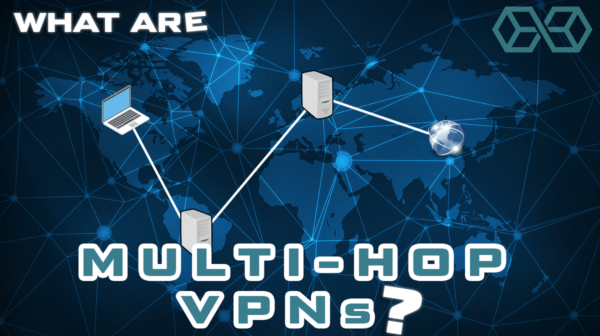Brief Information about Multi-hop VPN
Multi-hop VPN, also known as cascading VPN or VPN chaining, is a technique used to enhance the security and privacy of network connections by routing data through multiple VPN servers in different locations. This process involves encrypting the user’s data multiple times and transmitting it through several intermediary servers before reaching the final destination.
Detailed Information about Multi-hop VPN
Multi-hop VPN expands upon the traditional concept of VPNs by adding an extra layer of security through the use of multiple servers. Instead of a single direct connection between the user’s device and the destination server, Multi-hop VPN routes the traffic through a series of servers, each with its own encryption layer. This approach adds complexity and makes it significantly harder for third parties to intercept or trace the user’s online activities.
Key Features of Multi-hop VPN
- Enhanced Security: Multi-hop VPN encrypts data multiple times, making it extremely difficult for malicious actors to intercept or decipher.
- Improved Anonymity: By routing traffic through multiple servers in different locations, Multi-hop VPN helps obscure the user’s original IP address, enhancing anonymity.
- Geographic Diversity: Users can choose servers located in different countries, allowing them to bypass geo-restrictions and access region-locked content.
- Redundancy: In case one server in the chain becomes compromised or unavailable, Multi-hop VPN automatically redirects traffic through alternative routes, ensuring continuous protection.
Types of Multi-hop VPN
There are several variations of Multi-hop VPN configurations, each offering different levels of security and flexibility. Some common types include:
| Type | Description |
|---|---|
| Serial Multi-hop | Traffic is routed through a sequence of VPN servers in a linear fashion, with each server encrypting and forwarding data to the next one. |
| Parallel Multi-hop | Data is split and transmitted simultaneously through multiple VPN servers, then reassembled at the final destination for decryption. |
| Random Multi-hop | VPN servers are selected randomly from a pool of available servers for each connection, adding an element of unpredictability to the routing process. |
Ways to Use Multi-hop VPN
Multi-hop VPN offers versatility in its applications, catering to various user needs:
- Enhanced Privacy: Protect sensitive information and online activities from surveillance and data mining.
- Bypass Censorship: Circumvent government restrictions and access blocked websites or services by routing traffic through servers in unrestricted regions.
- Secure Remote Access: Ensure secure connections for remote workers accessing corporate networks from untrusted locations.
- Geo-spoofing: Mask your true location and access region-restricted content such as streaming services or online gaming platforms.
Challenges and Solutions
Despite its benefits, Multi-hop VPN may encounter certain challenges:
- Latency: Routing data through multiple servers can increase latency, impacting real-time applications such as online gaming or video conferencing. Solution: Optimize server selection and network infrastructure to minimize latency.
- Complexity: Configuring and managing Multi-hop VPN setups may be more complex compared to traditional VPNs. Solution: Use user-friendly interfaces and automated tools to streamline the setup process.
- Cost: Operating multiple VPN servers incurs additional expenses, which may not be feasible for some users or providers. Solution: Offer flexible pricing plans or utilize shared infrastructure to reduce costs.
Characteristics and Comparisons
| Characteristic | Multi-hop VPN | Traditional VPN |
|---|---|---|
| Security | High, with multiple layers of encryption | Moderate, relies on single encryption layer |
| Anonymity | Enhanced, obscures original IP address | Basic, masks IP but may still be traceable |
| Flexibility | Versatile, supports various configurations | Limited, typically offers standard server connections |
| Complexity | Higher, requires configuration of multiple servers | Lower, simpler setup with single server connection |
Future Perspectives and Technologies
The future of Multi-hop VPN is promising, with ongoing advancements in encryption protocols, network optimization, and automation. Potential developments include:
- AI-driven Routing: Utilizing artificial intelligence algorithms to dynamically optimize Multi-hop VPN routes based on network conditions and user preferences.
- Blockchain Integration: Incorporating blockchain technology to enhance transparency, security, and accountability in Multi-hop VPN setups.
- Quantum-resistant Encryption: Developing encryption methods resistant to quantum computing threats to ensure long-term security in Multi-hop VPN communications.
VPN and Multi-hop VPN Associations
Multi-hop VPN can complement traditional VPN services by offering an added layer of security and privacy. Users can combine both technologies to create a layered defense against cyber threats and surveillance.
Links to Resources
For more information about Multi-hop VPN and its applications, consider exploring the following resources:


